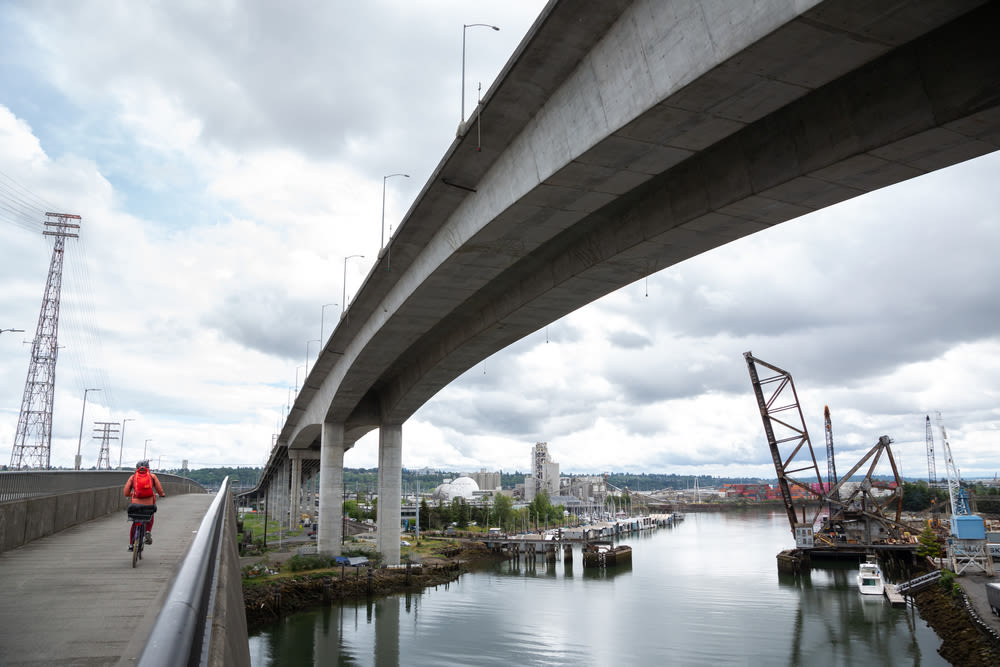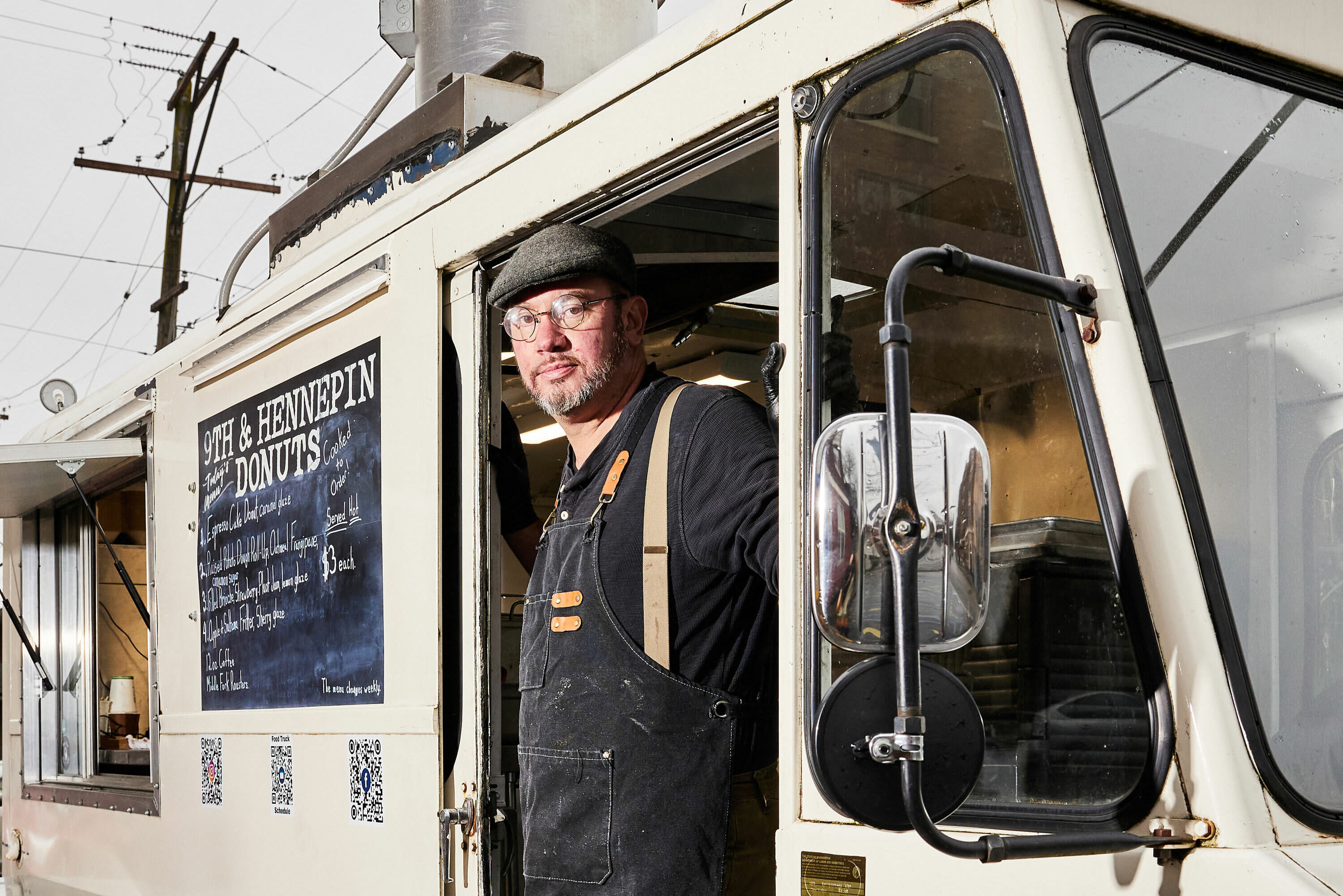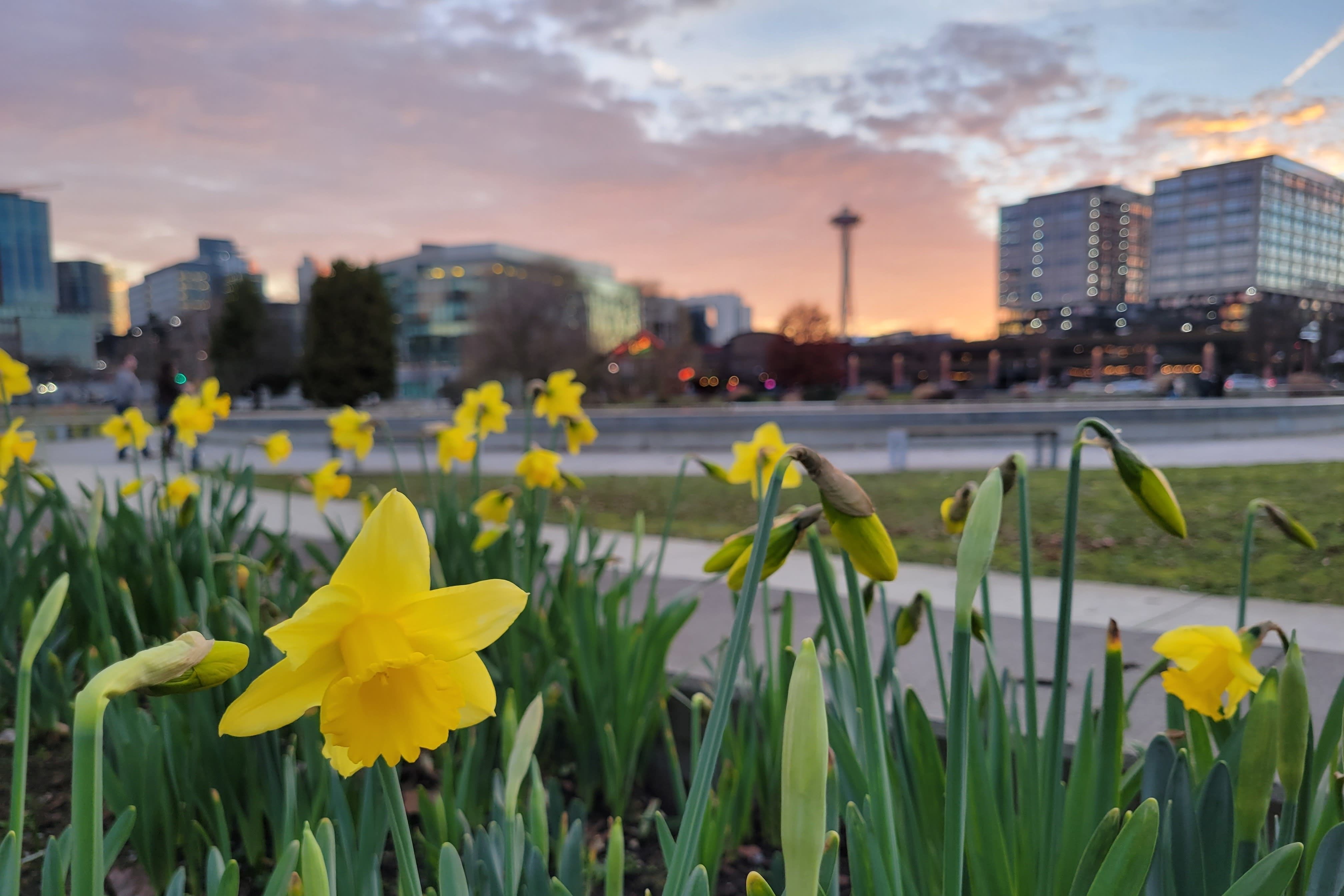Will Repairing the West Seattle Bridge Pay Off?

Still here.
There will be plenty of public health decisions to second-guess when 2020 feels more like a memory than a forever state of gloominess—why did we let the Sounders play that game again?—but a judgment call on infrastructure could be the choice we’ll scrutinize the most in the years ahead.
On Thursday, Seattle mayor Jenny Durkan announced that the city will repair, not replace, the infamous West Seattle Bridge. The Seattle Department of Transportation will continue to fortify the span that closed in March after inspectors discovered new cracks in its support structure. More than 100,000 vehicles used the bridge per day before the shutdown, according to SDOT; the goal now is for that traffic to return by mid-2022. “We know that repair will get us reconnected the fastest,” Durkan said during a press conference.
City council members Lisa Herbold and M. Lorena González (who lives in West Seattle) quickly backed Durkan's choice, which the city projects will cost $47 million upfront. Fellow West Seattleite Pramila Jayapal is confident that a major federal infrastructure package can help foot some of the repair bill down the road; the congresswoman identified two grant programs on Thursday that could provide some assistance amid the economic crisis.
But the mayor's strategy comes with potential drawbacks in the long term. The city's cost-benefit analysis estimates that the repairs would keep the bridge functional for 15 to 40 years. Such a wide range betrays at least some level of uncertainty about its potential longevity, and the analysis doesn't mince words: “We are not confident in how long the repaired bridge would last—it has already belied the expectations set when it was built." The report also notes that future maintenance and fixes could bring the project’s total cost to about $916 million—close to the outlay for a partial replacement of the bridge—and observes that it "could be difficult to secure maintenance funding on an annual basis."
Durkan mentioned that her preference had initially been to replace the structure. She was "intrigued" when a rapid replacement option emerged in late October. It would have cost significantly more than repairs at first (at least $391 million), but the project may have only taken one additional year to complete. Then the bridge would have lasted 75 to 100 years.
The mayor was skeptical that construction on that new span could actually wrap up by 2023, though. She was also concerned that money wouldn't makes its way west from D.C. anytime soon. Demolishing the bridge felt too risky with that in mind.
Still, the 36-year-old structure can't survive forever this way. "We will have to replace the bridge at some point," Durkan said.
When that will be is still anyone's guess.




